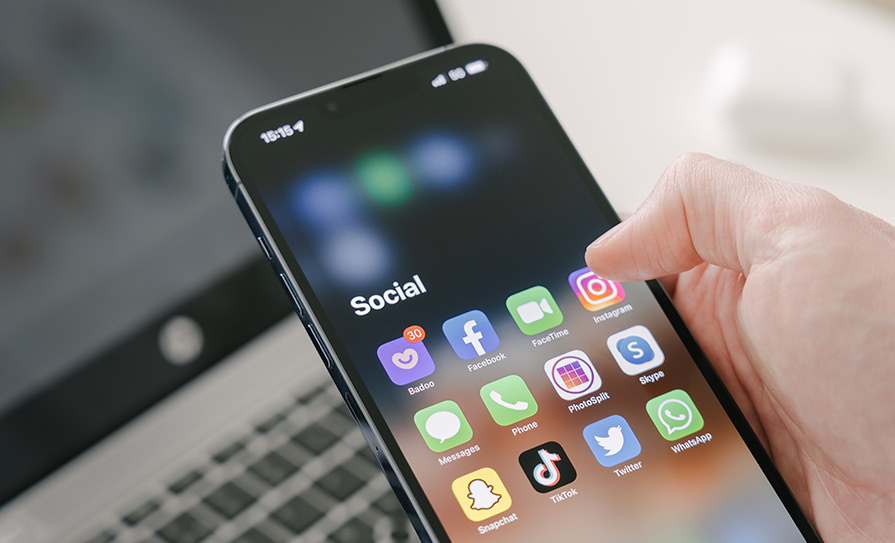
A new role for the general practitioner is challenging social media-led misinformation
Christine was 19. She attended me with a cough and sore throat. At last, a straightforward consultation, I thought. History, examination, explanation, hand-over, and safety-netting. All wrapped up in under 10 minutes. Not so fast. It was the safety-net that snagged me. On reviewing her file, I noticed that her contraceptive pill prescription had not been issued for some time.
“I’m not taking that anymore,” she said, when I asked her about it.
I checked her medical history to see if she had opted for a LARC. There was no record of this.
“Tell me more,” I said. “Why did you stop the pill?” I had opened the can and I sensed quite a few worms wriggling out.
She shifted in her seat. I had known Christine since she was a baby. Born in a small town in Tipperary. Educated in that town and Cork. One summer spent in New York. I had been the one to prescribe the pill for her, two years earlier, following a full discussion of the various contraceptive options. She had trusted my advice and information at that time. I sensed this was no longer the case by the way she avoided my gaze and fidgeted with her phone.
“I don’t want to take it anymore,” she said. “I’ve heard it’s not good.”
“So, it’s not that you want to get pregnant?” I asked, trying to dampen my irritation, preparing myself to listen to her concerns and find out what had led her to such a decision, even though I already knew. It was another case of TikTok versus the GP.
“No, of course not,” she said, looking at me as if I had just asked her if she wanted to shave her head and join an enclosed order. “I’m 19. I’m not even finished college.”
Christine’s specific concerns were the side-effects of contraception, which, she had read, included weight gain, future infertility, depression, and anxiety. She believed it was best to manage her fertility the natural way, using a menstrual tracking app. She picked up her phone to show me. Her phone, the source of so much medical misinformation.
Later that same day, scrolling my own phone, I clicked on the headline: ‘Women are getting off birth control amid misinformation explosion.’ The Washington Post article went on to say that a search for ‘birth control’ on TikTok or Instagram would elicit a “cascade of misleading videos vilifying hormonal contraception”.
“Young women blaming their weight gain on the pill. Right wing commentators claiming that birth control can lead to infertility. Testimonials complaining of depression and anxiety.”
Social media influencers, with millions of followers, are worming their way into the minds of women everywhere and convincing them that hormonal contraception is bad, will ruin their bodies and minds, and ruin their chances of motherhood. Most of these posts are geared at women in their teens and 20s. One survey showed that 40 per cent of posts on intrauterine devices on TikTok were negative, falsely stating that they increase the risk of sexually transmitted diseases and breast cancer. Negative content draws more clicks. More clicks imply more influence. Once immersed in this world, social media algorithms ensure that women will be exposed to content similar to what they have already watched. From this viewpoint, with no positive information to counteract the negative, it is easy to believe that all hormonal contraception is bad.
In the US, prescriptions for hormonal contraception have declined in recent years, thought to be replaced by cycle tracking apps. Once a woman downloads such an app, she is likely to receive a steady stream of posts stating the dangers of hormonal contraception. All of this comes from a country where many states are banning abortion and others are pushing for legislation to stop Medicaid funding of intrauterine devices and emergency contraception.
Meanwhile, in Ireland many women can benefit from free contraception, first trimester abortion, and GPs receive a reasonable fee for the provision of such services. But doctors may be losing their influence. One medical professional interviewed for The Washington Post article believes that doctors stand a better chance of dispelling misinformation when they listen to patients concerns and candidly discuss the common side-effects such as breast tenderness, bleeding, headache, and nausea. To reassure that these will abate with time and to present the research in an easily digestible form that women can understand.
Young women, raised in a digital age will turn to social media for information. Teasing out their knowledge and concerns takes patience and time. My straightforward consultation ran way over time. But yesterday Christine returned for insertion of LARC, her choice, after considering the relevant medical evidence. We may not have millions of followers, but GPs can still exert positive influence, one life at a time.





Leave a Reply
You must be logged in to post a comment.